Philadelphia Woodturning Shop Tour
An exclusive video tour of a turning shop largely unchanged since its founding in 1863, now the subject of a campaign to keep it from urban developers.The oldest wood turning shop in Philadelphia–perhaps the oldest in the U.S.–opened in 1863. Six generations of the Grass and Bower families have kept the John Grass Wood Turning Co. running without interruption since the Civil War. Now, however, its belt-driven lathes, shapers, and saws stand silent. Injury has forced the present owner, Lou Bower Jr., to shut down operations.
Enter Albert LeCoff, executive director of the Wood Turning Center, the pre-eminent enterprise for exhibiting and promoting fine art wood turnings. In the mid-1970s, as a young professional turner, LeCoff contracted with the John Grass Co. for spindles and other work. Today, the gallery and library for the Wood Turning Center is only a few blocks from the John Grass Co. And LeCoff is trying to raise some $4-million to preserve the turning shop as a living history museum.
| Update In the spring of 2008, LeCoff continued to raise money for the preservation project. He told FineWoodworking.Com that he’s also hired an architect to prepare drawings for the restoration. But, he said, if the fundraising falls short by June, the historic wood turning shop will most likely be destroyed.For more information about the Wood Turning Center’s effort to preserve the John Grass Co., contact the organization at 215-923-8000, or write to the Center at 501 Vine St., Philadelphia Pa. 19106. |
Exclusive video
Step into the John Grass Co., and you immediately understand why the shop deserves to be saved. It’s an irreplaceable example of the engineering and ingenuity that powered the U.S. through much of its history. The machinery dates to 1916 or earlier, and has never been modernized or needed repair. A series of thick, wide leather belts, running from a single shaft, power the multiple turning stations, a shaper, a cutoff saw, and other machinery. The 7.5-hp motor that now runs everything replaced a steam engine around the time of World War I.
Lou Bower knows every inch of the place. He says his father began bringing him to the shop when he was two, and he spent more than 40 years at work there. In his day he made thousands of flag poles, porch columns, tool handles, dowels. Even nightsticks for the city’s police department. A quiet, unassuming man, Bower matter-of-factly explains the workings of the shop and describes what it was like in operation.
Turning blanks are stacked under benches, in bins and barrels, and against the shop’s dusty brick walls. Sample spindles, posts, and balusters hang from hooks in the office. On the floor stands a baluster from the facade of Independence Hall. The John Grass Co. made the balusters for at least two rounds of renovations to the landmark building. Trays encrusted with a thick coating of dried shellac sit at the finishing station, as they have for decades.
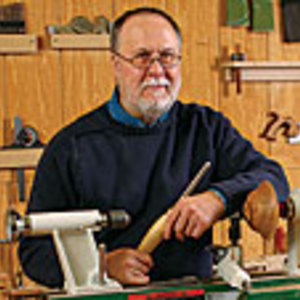
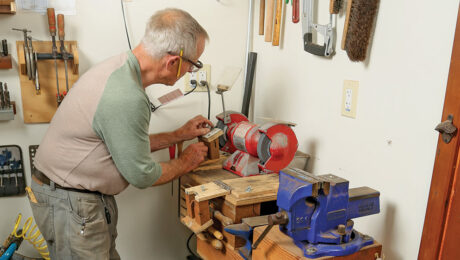
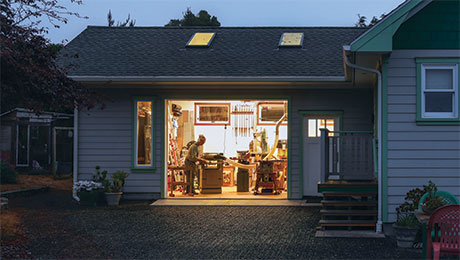
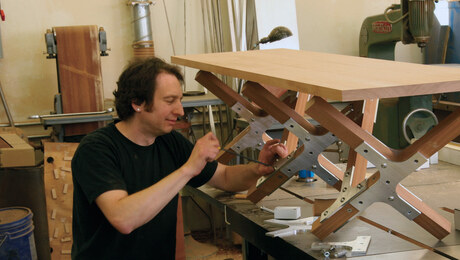
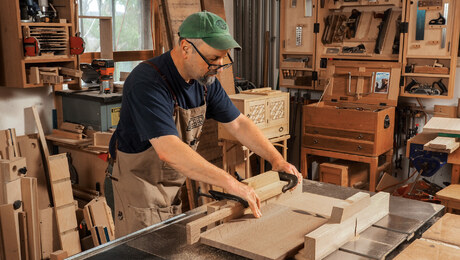



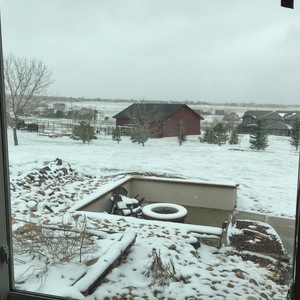
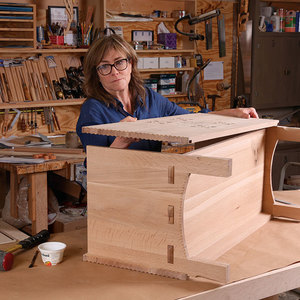
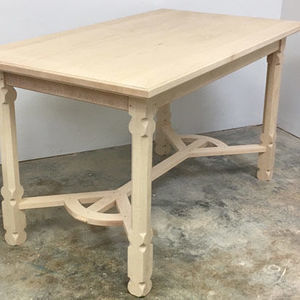
















Log in or create an account to post a comment.
Sign up Log in